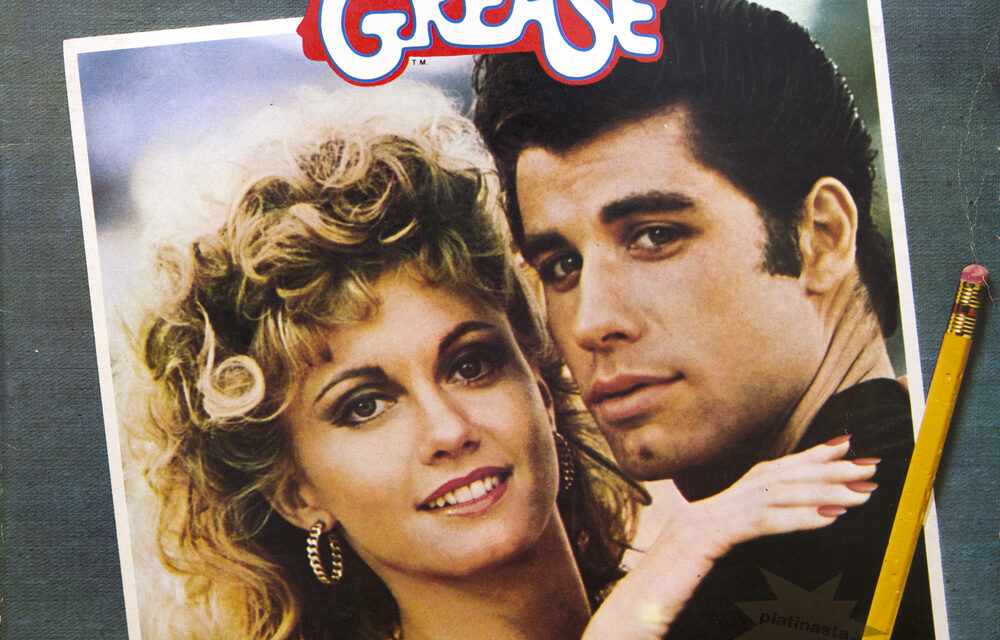One minute I’m reading The New York Times homepage, intrigued to see a photo from the movie Grease. I scroll down, only to see Olivia Newton-John has died.
I catch my breath, then share it on Facebook.
But then, delayed reaction, I begin to sob.
I mean, I get why I’m sad. I played I Honestly Love You and If Not for You over and over again on my little record player as a kid. And Grease, as recently as two days ago I caught the iconic ending while channel surfing and stopped to watch with nearly the same joy as the first time.
But sobbing?
Then it dawns on me. It’s because of conversations I’ve been having with friends lately about our shifting attitudes and approaches to sexuality in America. Olivia Newton-John, via her role as Sandy, started it all with the 1978 release of Grease.
Imagine for a moment being in high school, sitting in a movie theater and seeing that story play out. I know it seems tame now, but up to that point, you primarily had the voices of your parents, grandparents, aunts, and uncles – and in my case, a few nuns — giving you some version of the cow, the free milk, and all that jazz on the subject of sex.
On the big screen, Sandy, in her wholesome clothes and scrubbed complexion, has barely a chance with the oozing sex radiating off John Travolta’s leather jacket-clad Danny. She’s roundly mocked by “the girls” in a pajama sleepover for still being a virgin and not indulging in smoking and drinking. “Won’t go to bed ‘til I’m legally wed, I can’t, I’m Sandra Dee …”
Meanwhile, here we girls sat agape in the theater. Hormones sitting on our skin waiting for a go sign. Consistently told (warned!) to be this pure version of Sandy. Good. Be good. Those sexually active girls are mean! And sluts! But hadn’t Billy Joel just made clear “you Catholic girls start much too late” in his music? Around and around we go. What in holy hell.
But then, Sandy. Those same girlfriends aid in her transformation, unveiled on graduation day. Head-to-toe black, except for the red Candies. Leather jacket. Painted on leggings. Poufed up hair. Cigarette as prop. She’s matching Danny and raising him one since he too has done some changing and he’s in a letterman’s sweater.
The song is a duet and a duel, sexual longing and scary disbelief, bouncing off the walls of a funhouse. Her, am I doing this? Him, is this really happening?
Even many of those among us who were sexually active at that point (I was not one of them) had not come close to declaring what Sandy does in You’re the One That I Want. Thanks to Newton-John’s acting, we see her starting to realize her sexual power as she moves her body and learns to inhabit it. She needs a man to keep her satisfied? Wow, what a lyric for a high school girl to hear from another high school girl.
Travolta’s character wasn’t the only one who found this electrifying. So much of my generation was, despite the “live and let live” influence of the radical 1960s, sexually tamped down. It is no wonder this movie still has legs — long, shapely ones in stiletto heels. It’s about coming of age without all the practical stuff – i.e., what will they do after high school? We don’t actually care. It’s just entertainment that gave us permission to feel our feelings.
When I think about life in the sexual arena now, I find our progress heartening. It’s safe to say most of my friends and relatives in my generation have kids who live or have lived with someone they’re having a sexual relationship with outside of marriage. I see healthier attitudes about sex among young people and I think their parents have taken their own experiences of having to hide it from elders and decided they don’t need their offspring to go through that charade.
Rest assured, it’s this group of young Americans, used to sex on their terms, who will be shaping our upcoming elections as the radical Supreme Court plays with their rights to make basic decisions about their bodies. I maintain Newton-John’s Sandy played a crucial part in getting us to a place where we know enough to claim with a vengeance our family planning and, yes, our pleasure.
Sandy showed us it was worth meeting Danny there, that place of palpable mutual attraction, and in so doing told a generation of girls that they can go after all of what life is serving up. It will remain an enduring part of Newton-John’s legacy.
The one we need? Oh yes, indeed.






